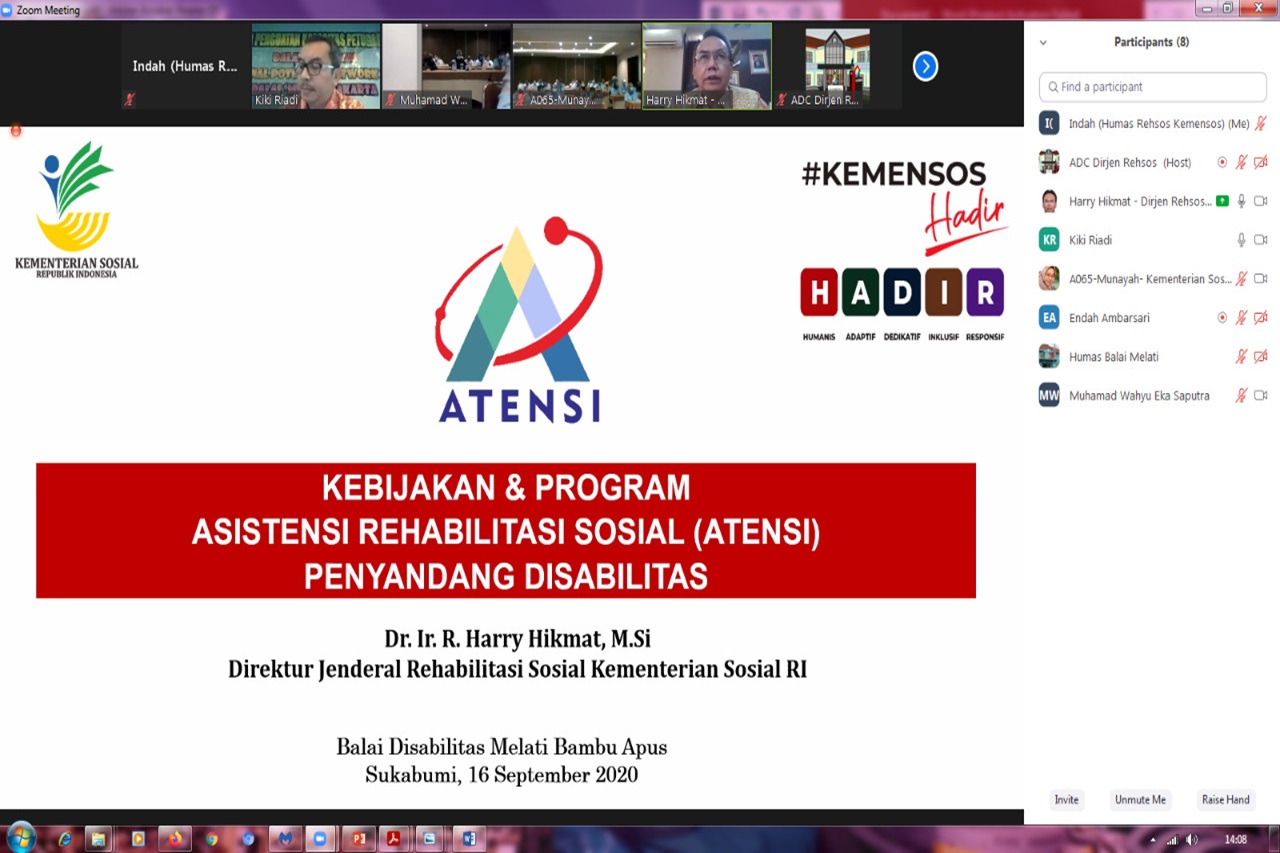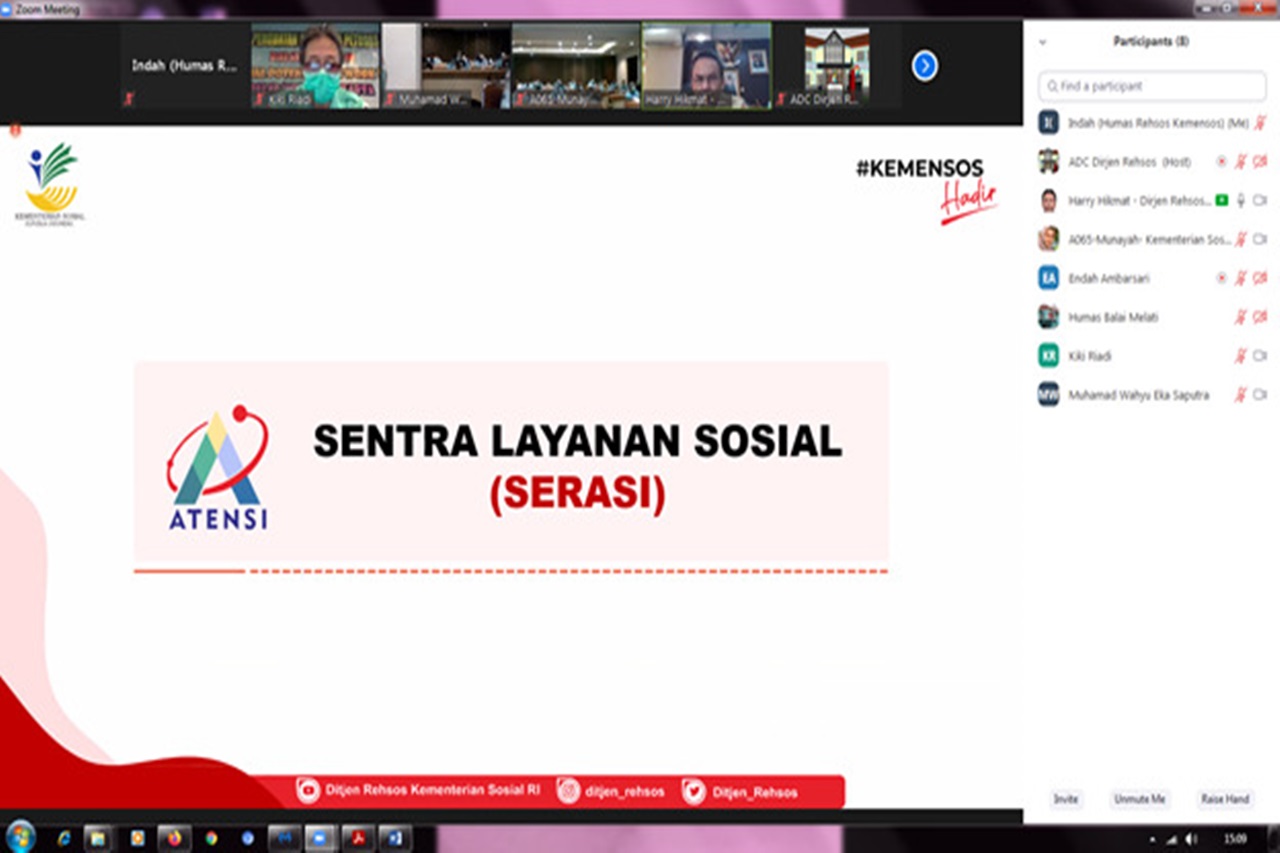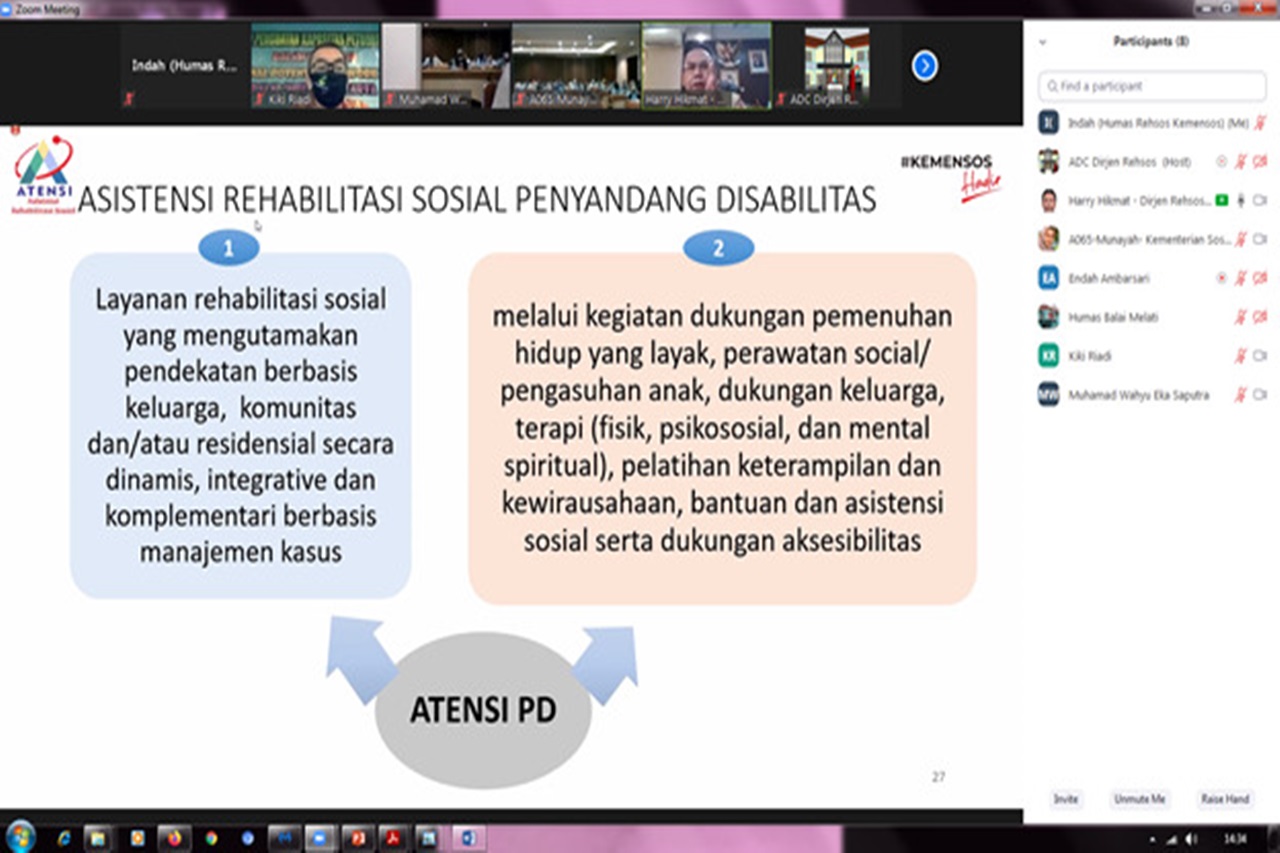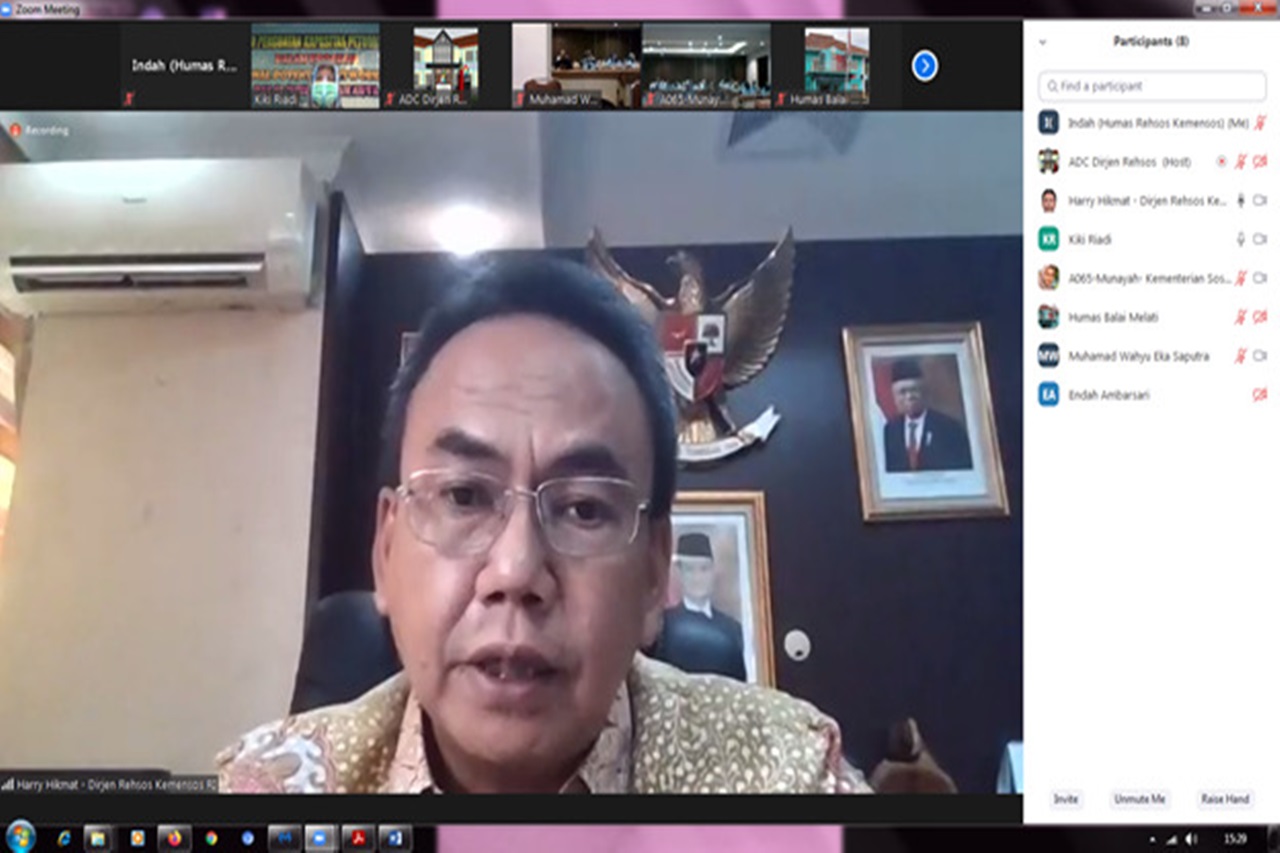JAKARTA (September 16, 2020) - The Indonesian Ministry of Social Affairs through the Jakarta “Melati” Disability Center held an Activity to Strengthen the Capacity of Regional Officers in the Regional Potential Network (RPN) Program in Sukabumi Regency, West Java.
The Director General of Social Rehabilitation of the Ministry of Social Affairs, Harry Hikmat, specifically gave directions to regional officers accompanying the RPN program through virtual meetings. "Currently there are 75.04 million people who need Social Welfare Services (PPKS) which are handled by the Ministry of Social Affairs, consisting of the categories of Children, Persons with Disabilities, Elderly, Drug Abuse Victims, as well as Social Tuna and Trafficking Victims," he said.
He continued that each PPKS category has different characteristics. On that basis, the Directorate General of Social Rehabilitation in collaboration with the Data and Information Center (Pusdatin) of the Ministry of Social Affairs to create a dashboard that can provide an overview of each PPKS category in the Social Welfare Information System Next Generation (SIKS-NG).
Vulnerable groups, including persons with disabilities, will be a priority in the integrated social welfare information system owned by the Ministry of Social Center for Data and Information. This is important as a material for determining government policies related to the ATENSI program for persons with disabilities.
“The task of regional companions is not easy. The assistants face different backgrounds of beneficiaries who require different mentoring patterns," said Harry.
Facilitators are very likely to find people with disabilities whose accessibility to education is hampered so that it has implications for the disruption of their social functioning in the community. Harry directed him to conduct an appropriate assessment when he found a speech-deaf sensory disability in the field.
Not only to be sent to the center, but also to carry out an assessment to determine what ATENSI is the most appropriate for the person with disability, whether it is family-based or community-based "Conduct a case conference to get comprehensive results," he asked.
Center need to ensure that families still have the capacity to provide care and care for persons with disabilities without having to hand over persons with disabilities to receive social rehabilitation in the community or at the Center.
In addition, Center must serve PMs across all age groups. The existence of an age restriction which is the criteria for PM at the Center makes it difficult for the Center to develop the capabilities of people with disabilities.
ATENSI for persons with disabilities in the future must be able to touch all age groups, from the early age group to the elderly, from the poor social strata to the rich social strata. All need social services.
ATENSI is a program to restore the social functioning of beneficiaries. The objectives to be achieved from the implementation of ATENSI are that the beneficiaries are able to meet their basic needs, the beneficiary families are able to carry out social care and protection, and increase the capacity of the community or Social Welfare Institutions (LKS) that are able to carry out ATENSI.
The implementation of ATENSI will be integrated with social assistance schemes from other social welfare programs. Harry emphasized that the Directorate General of Social Rehabilitation provides social services, not social assistance.
The Ministry of Social Affairs also initiated the Social Service Setra (SERASI) as an integrated service center or commonly known as one-stop or one-stop service. The Jakarta “Melati” Disability Center will be the center for family, community and residential/residential ATENSI services.
For community based, we will strengthen coordination with LKS. LKS has an important role as a partner center in the implementation of ATENSI, so there needs to be efforts to integrate social rehabilitation programs.
Harry further explained that the RPN Program is an effort to synergize the functions of the Central-Provincial-Regency/City government through a functional approach (dynamic, integrative, complementary based on case management).
The RPN is intended to support the participation of the Regional Government and other relevant stakeholders in an effort to resolve the problems of persons with disabilities who experience barriers to their social functioning.
“Melati” Center has a fairly large target of service recipients in 2021. This is a big homework that must be realized by involving coordination with various parties. Harry directed to optimize the synergy with the Social Service in the region and also LKS.
"I am sure that the Jakarta “Melati” Disability Center is able to provide the best effort in handling social problems for people with disabilities," concluded Harry.
This activity lasted for 4 days, from 15 to 18 September 2020. The activity was attended by 35 participants consisting of the Sukabumi Regency Social Service, SLB Part B Teachers, Disability Facilitators, Community Social Workers and Organizations for People with Disabilities in Sukabumi Regency, West Java.
 English
English
 Bahasa
Bahasa




